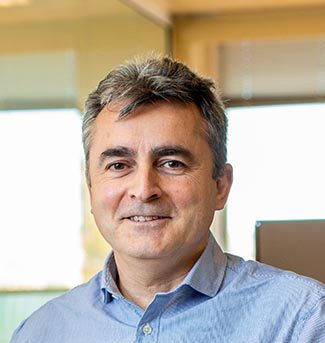Additive Manufacturing. 3D printing
The implementation in companies of additive manufacturing technologies (also known as 3D Printing) has produced a paradigm shift in the product development process. Particularly so in the initial design phase, where rapid prototyping makes it possible to turn a sketch into something tangible, allowing users and managers to have a clear representation of the product and its potential which in turn allows them to validate its design and quality.
By improving the properties and the variety of the property’s materials (polymers, metals, ceramics, and composites), it is also possible to obtain fully functional parts in limited, tailor-made series, not to mention the rapid manufacture of tools (Rapid Tooling) with which to manufacture one-off metal parts, inserts and mould parts.
That is why AIJU creates functional or aesthetic prototypes, with different types of finishes that make it possible to simulate the final product. We make it easy for companies to develop customised or unique parts, whether in plastic or in metal.
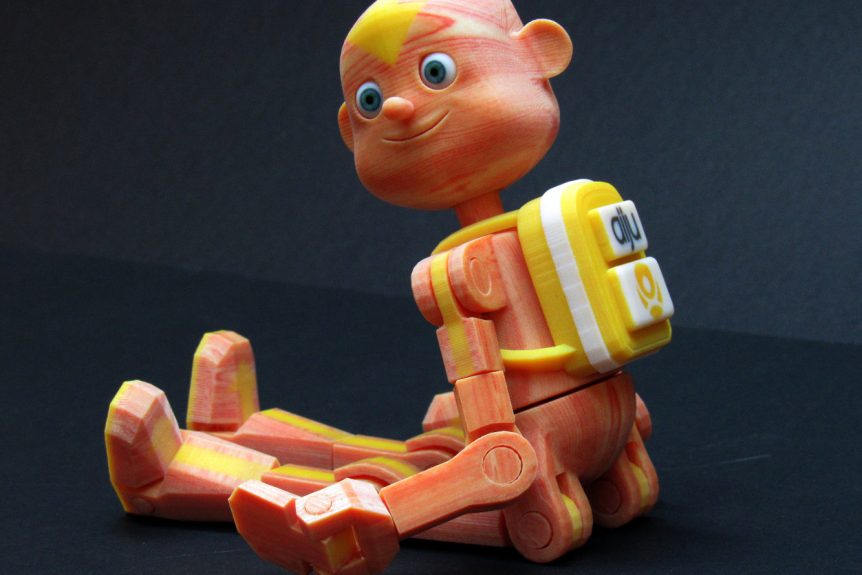
Advantages of additive manufacturing
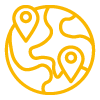


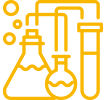
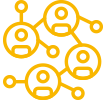

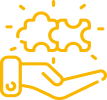
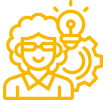
Prototype services with different finishes
Functional and/or aesthetic prototypes in metal and plastic for all sectors.
Possibility of rapid manufacture of prototypes with different specific technological solutions and finishes in accordance with the specific requirements of each product. This makes it possible to obtain everything from conceptual prototypes with functional requirements or even a specific aesthetic using plastic materials with different mechanical properties, as well as metals (stainless steel, aluminium alloys, etc.).
Finishing of parts.
Once the prototype parts have been obtained, it is possible to apply subsequent finishing processes to them that improve their appearance or performance. This includes subjecting the materials to a range of treatment and surface finishing processes, such as sandblasting, texturizing, polishing, painting, etc.
Personalised and/or unique parts.
Obtaining exclusive products from a digital model. This allows parts to be produced to particular specifications adapted to different users, as well as limited product series.
Limited series.
Manufacture of moulds and inserts in acrylic resins to validate parts with final materials or for the manufacture of limited series.
Rapid tooling in metal parts.
Conformal cooling in moulds and inserts for injection or blow moulding and thermoforming to reduce cycle times (10-40%) and improve part quality.
Important benefits of 3D printing prototyping with AIJU
Personalised advice from a highly experienced team for the development of a prototype that suits your purposes
- Personalised advice.
- A highly pro-active and experienced team, dedicated to service and innovation.
- Advanced parts finishing.
- Guarantee of confidentiality.
How we make functional or aesthetic prototypes
Our state-of-the-art Manufacturing Lab is equipped the most innovative, emerging and/or disruptive technologies that will allow you to obtain your parts simply by sending us a digital 3D file (obtained through any CAD software (SolidWorks, Sculpt, etc.).
We normally convert this file to STL format before we send it to the machine, where a second software delaminates the model into thin layers of a fixed thickness, which will then be printed.
We have different 3D printing and additive manufacturing equipment operated by highly specialised personnel:
More than 15 years’ experience in additive manufacturing
For more than 15 years we have maintained a line of research and our services include prototypes and/or parts that are fully personalised and adapted to the specific needs of companies.
Our technical staff that is dedicated to this line of work is highly qualified to develop and advise on the manufacture of any type of product using these additive manufacturing technologies.
As the result of this specialisation we can point to our activity in:
- The organization of events related to additive manufacturing.
- The provision of courses, seminars, webinars, talks, etc. in various specialised AM and 3D printing events.
- Review of scientific publications submitted to the Rapid Prototyping Journal.
- Development of more than 20 national and European research projects on additive manufacturing.
Since 2010, we have been an active member of the international standardisation committees ISO/TC 261 Additive Manufacturing (AM) and CEN TC 438 Additive Manufacturing (AM), acting as national coordinator of this committee in UNE. We are also a member of the European Additive Manufacturing Platform “AM Platform”.
